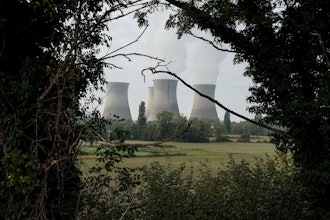
MEXICO CITY (AP) — Mexico said Monday it will buy Shell’s 50% share in the jointly-owned Deer Park refinery near Houston, Texas for about $600 million.
The move comes as part of President Andrés Manuel López Obrador's central policy to build, acquire or renovate oil refineries, in an era when most countries are trying to reduce their reliance on fossil fuels.
“We are going to stop buying fuel abroad ... we will become self sufficient by 2023,” said López Obrador, who is spending about $9 billion to build a similar-size new refinery in his home state of Tabasco.
In a statement, Shell wrote that “Shell Chemical L.P. will continue to operate its 100% owned Deer Park Chemicals facility located adjacent to the site.”
“Shell did not plan to market its interest in the Deer Park refinery," said Huibert Vigeveno, Shell’s Downstream Director. “However, following an unsolicited offer from Pemex, we have reached an agreement to transfer our interest in the partnership to them.”
The Mexican president had complained recently that Deer Park had not yielded any benefits for Mexico since 1993, apparently because most of the profits had been reinvested. But he acknowledged the refinery does process 340,000 barrels of crude per day, much of that Mexican crude.
López Obrador sees the oil industry as key to both the nation's sovereignty and its economic future, and has enacted rules limiting renewable energies like wind and solar power. Critics say it is a nostalgic position that hearkens back to the 1970s, when oil was king in the Gulf coast state of Tabasco, and makes little sense with the world’s growing shift to renewables.
While $600 million for half a refinery appears to be a good deal for Mexico, it also raises questions about the wisdom of the country's decision to invest $9 billion to build a similar, new facility.
Shell's decision appears to be part of a larger, international strategy to consolidate its oil refineries and transition to renewable energy resources.
The goal is for the refineries to be more integrated with the chemical complexes and produce more biofuels, hydrogen and synthetic fuels.






















